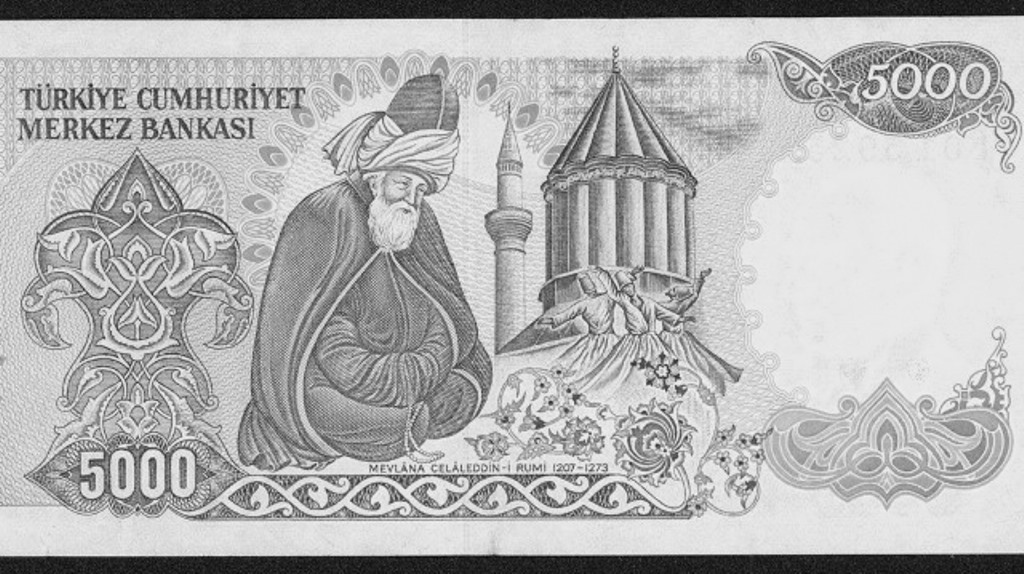Teaching the Inner Couplets of one Rumi
Has left me truly desolate and gloomy.
They say he’s great, this Sufi poet Rumi,
But frankly, it is most astounding to me
That anyone can read the text of Rumi
Without becoming gaunt and pale and rheumy.
Old Shakespeare might have cried aloud, “Beshrew me!
I never read such drivel as this Rumi!”
So give me a damned break, please, and just clue me
In on why this whirling dervish Rumi
Is so praised and adulated. Who, me?
Teach the gnostic blather of this Rumi?
Not anymore. So next semester, sue me—
I will not teach this drooling mystic Rumi.
Let ’em read the crackpot weirdo Rumi
In places where the weather is simoomy
Like Bangladesh, Sri Lanka, or Bakhshtumi,
Where storms will come, all thunderous and boomy,
And sweep him to pits sepulchral, dark and tomby.
That’s the best place for all the work of Rumi.
Joseph S. Salemi has published five books of poetry, and his poems, translations and scholarly articles have appeared in over one hundred publications world-wide. He is the editor of the literary magazine Trinacria. He teaches in the Department of Humanities at New York University and in the Department of Classical Languages at Hunter College.
















Dear Mr. Salemi, Feel seriously about it, do you? But, all ll those fans who adore Rumi….tsk, tsk. Still, it’s funny—“Rumi-rhummy” and your other witticisms. I bought a paperback of Rumi’s poetry a few years ago. Didn’t get far and didn’t pick it up again to decide why I put it down. Cheers.
Carol Ann Herring
That insipid mystic Rumi,
We can only now assume he
Thought our cosmos far less roomy
Than his airy-fairy, bloomy
Tedious verse that grates into me!
But I have plenty of friends who think he’s the greatest. Guess I’m missing something.
Joe,
A few years ago I met an Iranian man who lived next to the garden where I worked. I asked him whether he had read Rumi. His eyes lit up and he said, “Rumi is part of our life!” The works of Rumi are sometimes referred to as the Koran in Farsi for Shiite Muslems. And he told me that Rumi’s poems rhyme. “That’s the point of reading them,” he said. Apparently something is lost in translation. My favorite, translated by Coleman Barks, is this:
Come to the orchard in Spring.
There is light and wine, and sweethearts
in the pomegranate flowers.
If you do not come, these do not matter.
If you do come, these do not matter.
C. B. Anderson, those are excellent lines by Rumi, even in translation. I believe Rumi is now the best-selling poet in the United States, so obviously many readers do not agree with Dr. Salemi. Here is a similar poem by Rumi that I like and admire:
When I am with you, we stay up all night.
When you’re not here, I can’t go to sleep.
Praise God for these two insomnias!
And the difference between them.
Here is another poem by the great Persian poet Rumi that makes me question Dr. Selemi’s criticism:
A candle is made to become entirely flame.
In that annihilating moment
It has no shadow.
It is nothing but a tongue of light
describing a refuge.
Look at this
just-finishing candle stub
as someone who is finally safe
from virtue and vice,
the pride and the shame
we claim from those.
Is this “drivel”? Does it make readers feel “gaunt and pale and rheumy”?
Mike,
I do not know how it makes people feel, but I suppose that varies. I do, however, wish I could hear the Farsi rhymes. Farsi, or modern Persian, is an Indo-european language btw. I also wonder whether this poetry has a metrical element.
I seem to remember Coleman Barks saying that the original poems do rhyme, but that he prefers free verse for his translations. But that’s a rather vague recollection, so I could be wrong. I also seem to remember him saying that he doesn’t read Farsi, and works from texts by other translators. Some of his translations seem quite good to me, and I suspect that the original poems are even better.
Quite agreeable qasida couplets, particularly the Shakespeare quote.